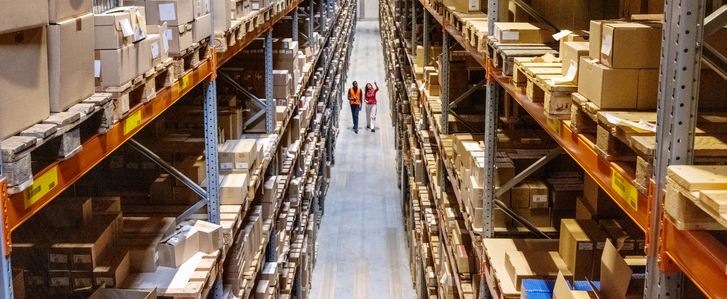
What is the CME Office?
The role of the SCO Office is to create a program of activity that seeks the most vulnerable healthcare and public health supply chains within the U.S. and identifies courses of action to mitigate those risks of disruption, lessens supply chain vulnerabilities, and increases our national medical supply chain resilience.
SCO in Action
The SCO team conducts continuous supply chain situational monitoring and surveillance for potential disruptions to the public health industrial base by using close to “real time” information and data in industry/economic trends, industry engagement strategies and partnerships, providing insights on courses of actions for mitigation.
SCO also provides supply chain support for incident management on an as needed basis (e.g. Operation Fly Formula). This is supported by conducting studies such as the Market & Economic Analyses (MEA) for Personal Protective Equipment, Testing & Diagnostics, and Active Pharmaceutical Ingredients. SCO will continue to conduct MEAs in future years to maintain a current set of public health industrial base requirements to inform all IBMSC future plans and programs.
SCO Program Activities
SCO conducts a myriad of program activities all designed to identify, understand, address and, ultimately, mitigate disruptions to the domestic medical supply chain. These efforts keep on the pulse of supply chain challenges. As ASPR’s supply chain guardian, we are always monitoring the medical industrial base for potential risks of disruption, industry trends and market moves, threats to our nation’s logistics infrastructure, recommending actions as appropriate to leadership to help ensure we can respond to the next public health emergency.
SCO Program Activities At-A-Glance
Studies and Assessments
- Conducting Industrial Based Assessments (IBA) to identify the supply chains most vulnerable to disruptions within the healthcare and public health (HPH) sector and develop and identify alternatives and/or solutions to mitigate those disruption risks.
- Department of Commerce surveys are yet another example of analysis that SCO leads, allowing us to expand our knowledge of the U.S. market demand for essential medicines and the resultant supply chain that is in place to meet that demand. The knowledge that will be obtained through this and other surveys will encompass the most comprehensive understanding of the supply chain through all levels of production and value-added activity across any number of technical, corporate, geographical, cultural, and political borders. The survey results will also reflect the existing risks associated with moving goods through those supply chains.
Surveillance
Monitoring domestic and world events that would impact or disrupt the flow of critical medical and pharmaceuticals supplies to, from, and within the U.S. markets. Monitoring could include, but is not limited to, manufacturing capacities, natural disasters, economic fluctuations, government policy actions and labor disputes. In addition, we develop and maintain domestic partnerships that strengthen sustainability by sharing information related to manufacturing, sourcing practices and capabilities. This collaborative effort is accomplished through a regular cadence of meetings of the Joint Supply Chain Resilience Working Group, and other public-private efforts, to monitor the health of the medical and pharmaceutical supply chains. Monitoring activities build an understanding of current market and broader economic landscape and lead to the development of solutions to mitigate disruptions.
Requirements Development
Through MEAs, we can determine both market and HPH sector conditions, track trends in the industry, and establish a multi-year outlook that can inform all other IBMSC program activity. Using the MEA process, requirements for critical medical devices and medicines for the nation will be determined, compared to industrial capacities and capabilities, and strategies are put into place to address any gaps to ensure the nation is prepared to respond to the next public health emergency.
Data Analysis
Using the various data analytics capabilities within ASPR, reports from other USG agencies and Operational Divisions, such as Commerce and FDA, as well as publicly available information, our team of supply chain experts analyze data, determine their potential impact, provide expertise and insights on the data, and provide recommendations for leadership on how best to respond.
Industry Engagement
Our team is primarily responsible within IBMSC for direct engagement with industry. One of the best ways we do this is not only through attendance at trade conferences and other public events, but also through IBx Connect, a portal designed by IBMSC to give industry an efficient and effective way to engage with not only IBMSC and other ASPR offices, but other USG agencies as well.
Resilience
Within this division SCO can take specific actions to increase resilience of the public health supply chain through (1) programmatic investments, (2) activating various trade levers available to the USG, (3) regulatory or legislative remedies, and/or (4) market promotion efforts to increase demand for our domestic industrial base.
Why is the SCO Office Important?
The Office of Supply Chain Optimization (SCO) is an enterprise suite of capabilities providing supply chain surveillance, data-driven risk assessments, market and economic analysis, programmatic resilience activities to mitigate risk of disruptions of the HPH supply chain.
SCO serves as ASPR’s central hub of communication and collaboration for supply chain resilience efforts by identifying, assessing, and developing a collaborative program of activity to mitigate risks in the HPH supply chain. Our efforts help ensure our national HPH sector capacities are preserved, economically viable, resistant to disruption, and kept competitive in the global marketplace so that these producers/distributors are ready to respond to the next emergency when called upon.

